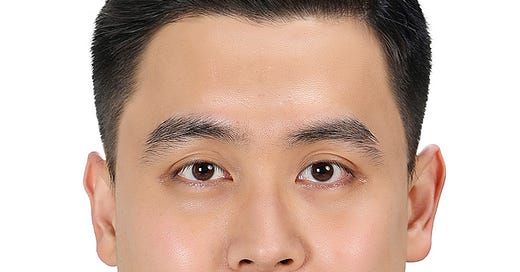VIEWPOINT | State wrong to outsource competency determinations for would-be lawyers
Guest column by Jun Byung Park, USD School of Law graduate
I attended the University of South Dakota Law School and graduated in 2017. Like many other USD law graduates, I have been denied admission into the South Dakota State Bar solely because of my inability to secure a passing score on the multiple-choice portion of the Bar Exam supplied by the National Conference of Bar Examiners (NCBE).
As was recently reported by the South Dakota Supreme Court’s Steering Committee, “[n]early all of those who did not pass the bar exam passed the essay portion of the bar, but were unable to pass the multiple-choice portion of the bar exam.” I fall among that category of test takers.
There has recently been a growing national concern over the use of the NCBE’s multiple choice questions. Critics and commentators question this unchecked outsourcing of competency determinations to an entity that is neither subject to public disclosure requirements nor subject to monitoring by an outside agency.
According to a recent article published by the ABA Journal, only 23 jurisdictions have signed up for the Next Generation Exam being promulgated by the NCBE. Why is this so? The article, entitled “Is the National Conference of Bar Examiners losing power?” is authored by Julianne Hill, Legal Affairs Writer for the ABA Journal. Her reporting reveals a growing lack of confidence in the NCBE and recognizes that the outsourcing of test preparation is an improper delegation of authority.
Hill’s article demonstrates that, typically, each state supreme court controls bar admissions directly through duly-appointed bar examiner committees, composed of lawyers or judges appointed by the state supreme court to serve a fixed term. Quoting Marsha Griggs, president of the Association of Academic Support Educations and a Law Professor at Saint Louis University School of Law, Hill notes, “Their expertise is being a lawyer or possibly a judge. It’s not creating a standardized test. Many of them are absolutely not law professors, and their last experience with an exam was taking the bar themselves.” This holds true for South Dakota, where the Board of Bar Examiners is composed of five members, none of whom have experience as a law professor or in providing legal education. Similarly, none of the members of the Steering Committee are law professors.
Keeping in mind that the NCBE is not required to make public disclosures and is not monitored by any outside source, Hill goes on to state, again quoting Griggs: “It is important to continually pay attention to what's happening with NCBE test products. ‘I think it’s wrong to put all or most of that power into the hands of a nongovernmental organization that's not subject to public disclosure or scrutiny. It's a danger,’ [Griggs] says. ‘With the power they have, if ever they acted in a way that was misguided, that’s a problem for all of us.’”
Jun Byung Park resides in Seoul, South Korea. He is a graduate of the University of South Dakota School of Law, serving as Assistant Law Librarian at the School of Law in 2017.



















I always had problems with multiple-guess questions -- until I realized that the desired answers were usually always found in "review" manuals that could be boughten for $$$...
Two state bar exam taker and passer. Maybe study harder? If you want to be a practicing lawyer, maybe don’t whine about things you can’t pass? Judges don’t like attorneys who won’t comply with the rules.